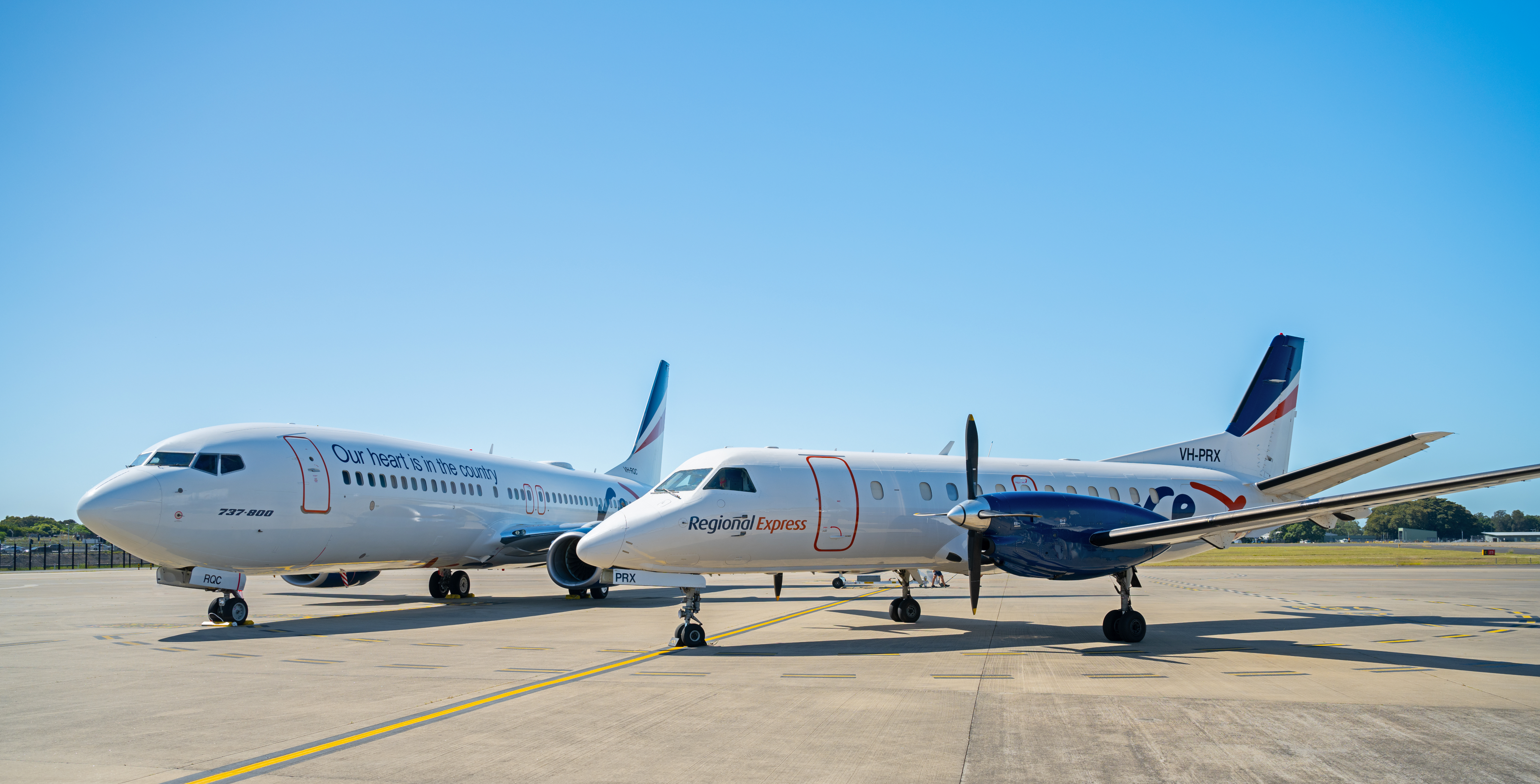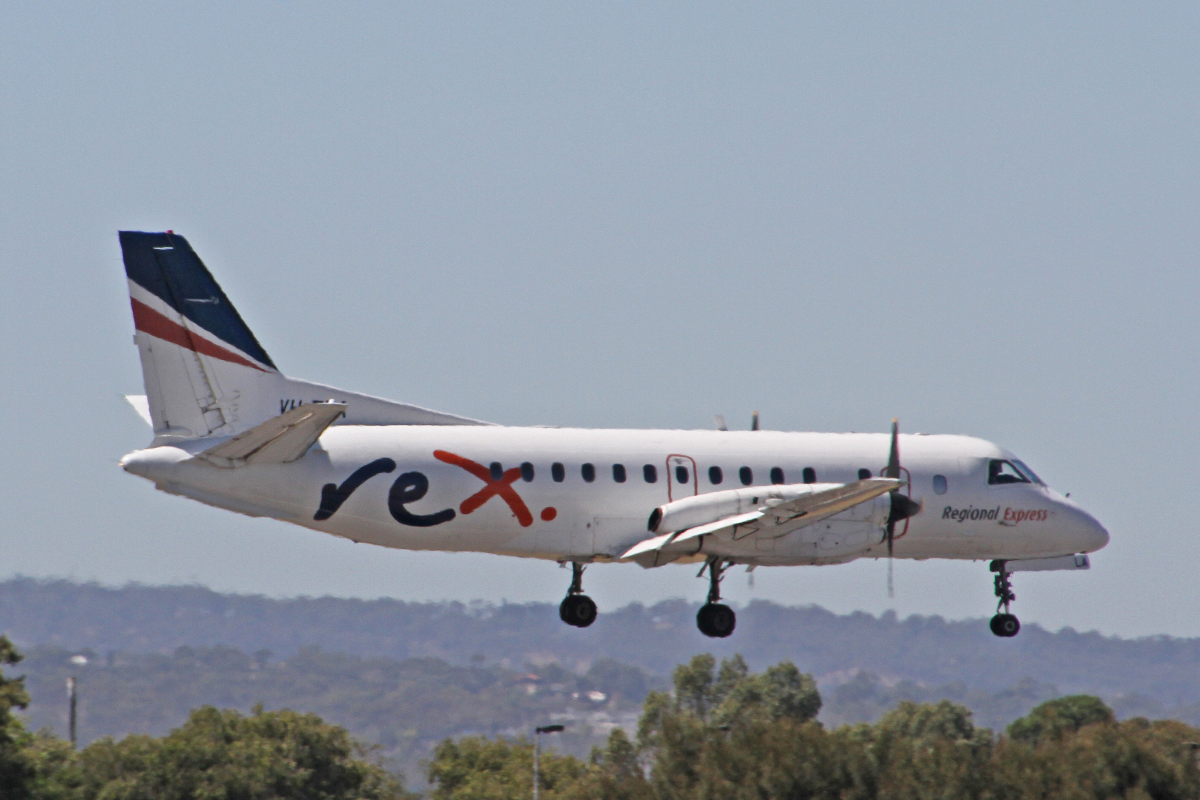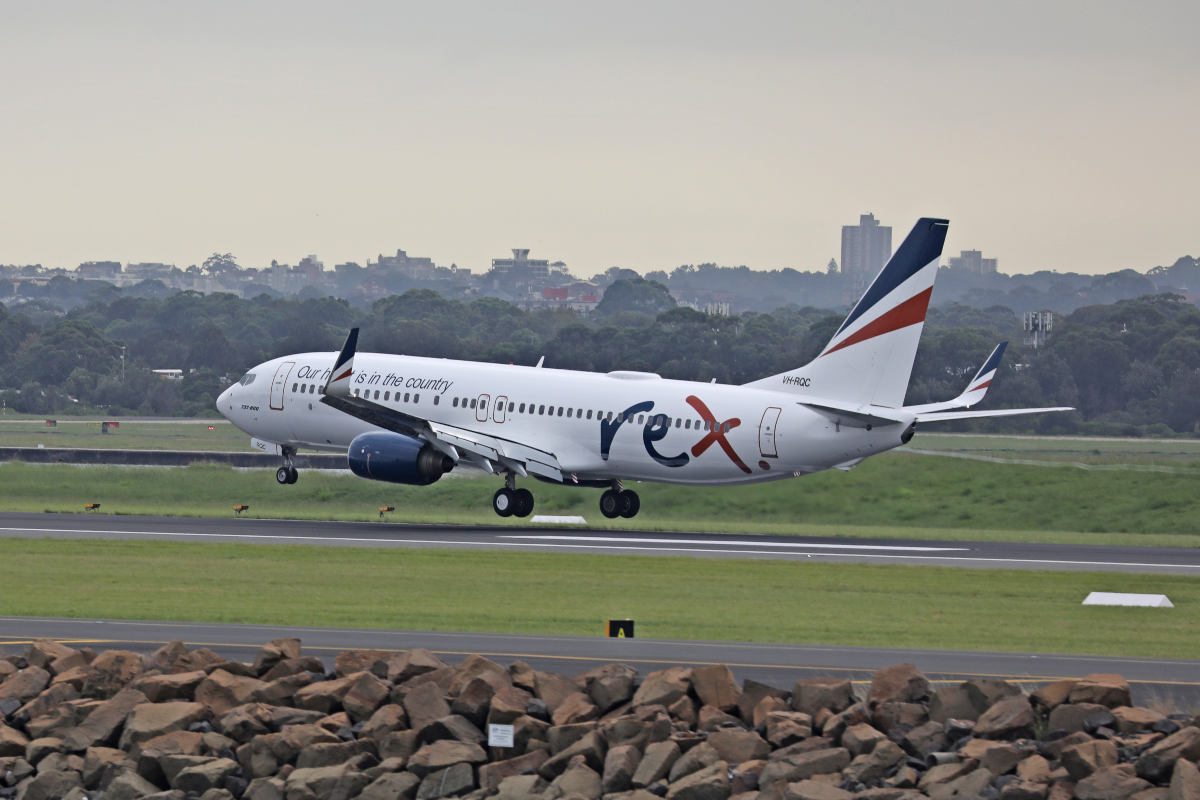Regional Express (Rex) has its fingers crossed for a bumper 2023 financial year after a record result in July. Rex has confirmed its highest ever passenger numbers and revenue across its domestic jet and regional turboprop networks for July. For the first month of the new financial year, Rex's pre-audited base passenger revenue was AU$31.5 million. Rex's Boeing operations generated AU$13.6 million for the month and the turboprop operations generated AU$17.9 million. It is a result Rex's Executive Chairman, Lim Kim Hai calls "astonishing."
Bumper loads and record revenues for Rex
Heavily booked planes are helping to account for the bumper revenue. Rex's load factor was at 86% across the entire domestic network. Although the airline did not provide a breakdown between its jet-operated trunk routes and its turboprop-operated routes, Simple Flying understands the average load factor on Rex's turboprop services averaged between 70% and 75% in July, with loads substantially higher on the jet services.
Rex also added the amount of regional flying it did in July was 4% down on July 2019. However, even with that cut, revenue per flight and passenger load factor on the turboprop services was up by 8% and 7%, respectively.
Like most other airline markets, the Australian domestic airline market faces some issues. Labor shortages at airlines, airports, and contractors pose ongoing operational challenges, causing significant delays, cancelations, and disruptions (although Rex has escaped the worst of these).
Throw in a winter flu season, ongoing waves of COVID-related illnesses, continuing high fuel prices, and an unusual amount of bad weather on Australia's east coast, and it's a relatively hostile environment for any airline to operate in. But helping to ease the pain for airlines, and also partly accounting for Rex's record monthly revenues, is strong passenger demand and rising ticket prices.
New Boeings to boost frequencies
However, a cracking start to the new financial year won't immediately erase Rex's COVID hangover. The airline's annual results for the 2022 financial year, which ended on June 30, are due out soon. There's unlikely to be anything record-breaking about them. It was only in the last three months of the 2022 financial year that Rex (and other Australian airlines) began enjoying a sustained rebound. It remains early days yet, but barring further significant COVID disruptions, Rex is eyeing a return to profitability this financial year. That will give the Rex C-suite crew and its shareholders something to cheer about.
Meanwhile, Rex confirmed on Tuesday morning that another Boeing 737-800NG would enter service later in the month. That plane is VF-MFM, a leased 7.7-year-old Boeing that formerly flew for El Al Israel Airlines, Vistara Airlines, and Samoa Airlines, among others. The plane is still in France, preparing for its flight to Australia. Rex expects two more 737-800NGs to join VH-MFM by the end of the year, taking the airline's total Boeing 737-800 fleet size to nine.
Rex's Deputy Chairman John Sharp says the new planes will initially get deployed on existing routes. He says passenger loads on existing 737-800 services are almost at capacity, and there's a need to boost frequencies. However, Mr Sharp notes with the extra planes, there is room to revisit previous plans to launch new routes.
"Rex is the only airline in Australia, and perhaps only one of five in the world that has not made an operational loss since 2003 up to COVID. Our best-of-class operations are without dispute," adds Lim Kim Hai. "With such financial and operational prowess, we look confidently ahead in this financial year as we turn the corner on these devastating COVID years."



